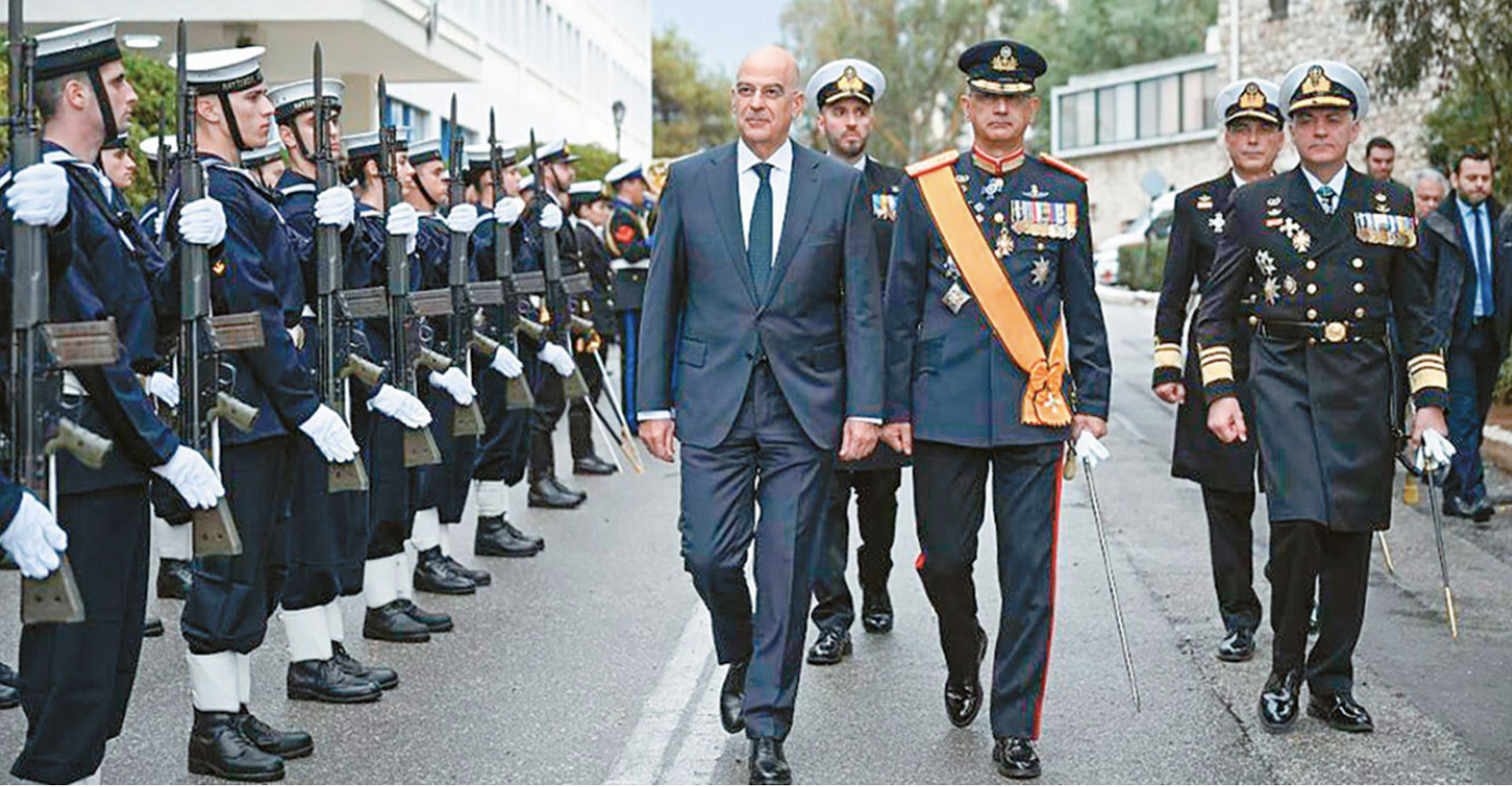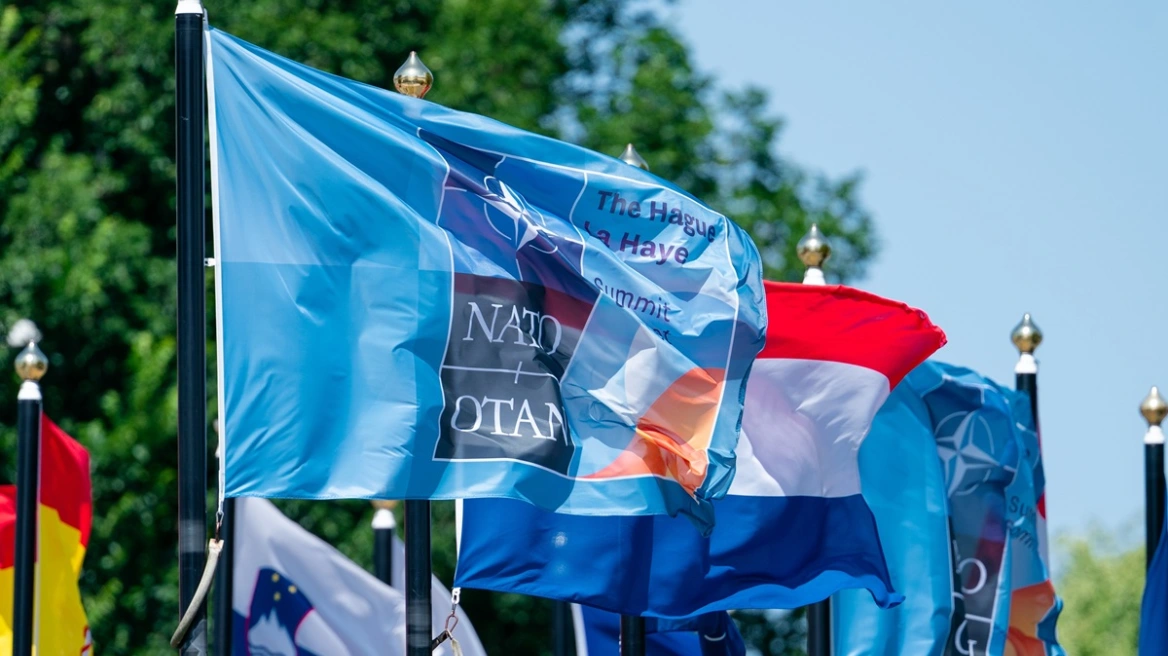The leadership of the Ministry of National Defense is set to present a bill for the utilization of the Armed Forces’ real estate assets at today’s Cabinet meeting. While this meeting wraps up the current year, it also opens, for the first time, a window of opportunity to address the housing needs of the permanent personnel of the Armed Forces.
Addressing a long-standing issue and a recurring demand from permanent Armed Forces personnel stationed in remote areas and serving in readiness units, the Ministry of National Defense has launched an extensive housing program for 4,000 residences, with a completion horizon of 2030.
The core of this new bill was unveiled by the Minister of National Defense, Nikos Dendias, during a parliamentary budget debate earlier this month. He stated, “Wherever the homeland assigns a posting—whether alone or with family—the professional military member will receive a key to a home, as is the case with all progressive militaries around the world.”
Notably, the first 1,000 homes to be built will address immediate needs in Eastern Macedonia, Thrace, and the Aegean islands, where a significant portion of the Armed Forces’ personnel is prioritized for deployment.
Specifically, the housing program initially focuses on the broader areas of five cities in Thrace (Alexandroupolis, Didymoteicho, Orestiada, Komotini, Xanthi) and 13 islands in the Eastern and Central Aegean (Karpathos, Rhodes, Kastellorizo, Kos, Samos, Chios, Leros, Lesvos, Lemnos, Samothraki, Skyros, Mykonos, Syros). This involves 54 housing complexes for all three branches of the Armed Forces.
At the same time, 15% of the total number of homes will be allocated to public healthcare doctors, primary and secondary school teachers who are unable to secure housing in their assigned areas, particularly in remote and tourist-heavy regions.
To achieve this strategic goal, part of which is already underway with the construction of the first 1,000 homes, securing the necessary funding is essential. This requires a series of structural changes included in the proposed bill.
According to sources, the Ministry of National Defense plans to replace the current Armed Forces Real Estate Management Service (ΥΠ.Α.Α.Π.Ε.Δ.) with a new Private Legal Entity. This decision aims to achieve two main objectives: streamlining the asset utilization process to better highlight the commercial value of properties, and establishing a Real Estate Management Company for the Armed Forces (ΕΤΑΕΔ) to guarantee the optimal exploitation of assets not used for military purposes.
Repurposing Military Camps
For example, the infrastructure of 10 military camps being consolidated under the ongoing Armed Forces restructuring program, as part of their new structure, will be repurposed. The second phase of this plan is set to be completed by March 31, 2025.
The proposed changes also include the creation of a unified fund (TΑΕΘΑ) to replace the current separate funds for each branch of the Armed Forces (ΤΕΘΑ, ΤΕΣ, ΤΑΑ). This unified fund will allow for consistent property management standards.
Addressing Costs
With an aim to reduce rental costs and increase interest in service assignments in remote and border areas, the Ministry of National Defense’s housing program is expected to expand starting in 2025, as announced by Minister Nikos Dendias.
Speaking during the parliamentary budget debate, he said: “We have already launched and are implementing a housing program for 1,000 homes. I can tell you that the continuation of this program, with 1,000 homes per year until 2030, will be announced in the coming year. By then, we will have reached 4,000 homes, with an annual investment of €25 million after the initial €100 million.”
“We consider this the ceiling, and it will cover all housing needs for Armed Forces personnel,” the minister emphasized.
He summarized: “Wherever the homeland assigns someone, whether alone or with family, the professional personnel will be given a key to a house, as is the case with all progressive militaries around the globe.”
Initial Phase Underway
Since last July, the first phase of the housing program for Armed Forces personnel has been underway. This phase involves the construction of 700 homes with a budget of €100 million, funded through the Public Investment Program.
Priorities
The first housing units under construction are expected to address urgent needs in the regions of Eastern Macedonia and Thrace, as well as the islands of the Aegean, where a significant portion of Armed Forces personnel is being reassigned as a priority.
At the same time, the location of these new residences will also provide a solution for public sector medical and educational staff. Fifteen percent of the total housing units will be allocated to meet the needs of National Health System (NHS) personnel as well as primary and secondary education teachers, who often face situations as extreme as eviction during the summer months in popular tourist destinations.
Additionally, other housing programs for the Armed Forces are currently underway, aiming to construct 300 residences in both island regions and mainland Greece. While the Ministry of National Defense does possess housing units for its personnel (SOA, SOMY, SOEPOP), the number is limited.
The completion of the first phase of constructing 944 residences for Armed Forces personnel is projected for 2026. Meanwhile, the ministry’s services have already begun mapping out the housing options for personnel, requesting months ago that staff declare whether they use private or rented residences in their places of assignment.
Addressing the majority of housing needs is expected to commence in 2025, once the necessary funding tools are secured to provide an additional 3,000 residences. This initiative aims to gradually fulfill the Ministry of National Defense’s strategic goal: “a house for every reassigned staff member,” with a target completion date set for 2030.
In this direction, the program for utilizing military camps slated for consolidation by the end of the year is expected to be approved tomorrow by the Governmental Council for National Security and Foreign Policy (KYSEA). This initiative aims to financially support the new housing program, coinciding with the presentation of the new structure of the Armed Forces.
Given the geographic location of these military camps (most of which are in border areas), the pace of property development may vary. However, a special legal entity will be established to oversee the process, with the entire program scheduled for completion by 2030.
By 2030
The year 2030 serves as a pivotal moment for shaping the future identity of the Greek Armed Forces in a fluid and turbulent geopolitical context.
On one hand, regional conflicts, and on the other, the evolving architecture of the international system, reinforce a return to projecting hard power and, consequently, modernizing defense capabilities, even among strong NATO member states.
For the Greek Armed Forces, the ticket to this next phase is their new structure for the next 12 years (2024–2035). This operational and administrative restructuring, anticipated for KYSEA approval tomorrow under the title “Agenda 2030,” is designed to integrate emerging requirements and, above all, new technological capabilities, such as cyberwarfare and defense innovation capacities.

Greek Production
The establishment of the Hellenic Defense Innovation Center (ELKAK) and its deepening collaboration with France’s Defense Innovation Center (AID) represent a “leveraging of funds for Greek production” in defense programs, according to Defense Minister Nikos Dendias. ELKAK is already managing 81 programs with a total budget of €166 million, including NATO and EU-funded projects, while also eyeing intergovernmental programs worth €2.8 billion in the near future.
At the same time, asymmetric threats, communication security, and cybersecurity are increasingly occupying military analysts worldwide—and Greece’s defense leadership is no exception.
Aligned with the defense priorities of this new era, the construction of a state-of-the-art Cyber Unit building, funded by a donation from the Athanasios K. Laskaridis Charitable Foundation, marks a significant step toward transitioning to a new defense reality.
This new building, which had its foundation-laying ceremony last week, will serve as the headquarters of Unit 1864. Alongside newly established units for Electronic Intelligence (Unit 1821) and Space Applications (Unit 1912), it aspires to lead Greece into a new age.
“We will have new capabilities in the critical operational theaters of cyberwarfare and information operations,” said Mr. Dendias, emphasizing that “the war in Ukraine and the broader security situation compel Greece to reassess its long-standing doctrinal approaches.”

Conscripts
In the transition to a more modern and effective organization of the Greek Armed Forces, an unquestionable priority is a cultural shift regarding the structures and needs of the sector’s human resources.
Starting with the fundamentals—the public image of the Armed Forces within Greek society—despite high levels of institutional approval, there is still a struggle with appeal and attractiveness.
The low enrollment in Military Academies in recent years, coupled with the wave of resignations from permanent personnel with high qualifications, has alarmed the leadership of the Ministry of National Defense. This prompted attention to various issues of daily life, as well as professional and salary progression for its personnel.
In this context, starting from the basics—i.e., first-year cadets in Military Academies—the monthly allowance for all cadets has been significantly increased from €150 to €600 as of January 1, 2025. Moreover, legislative initiatives have introduced allowances for Naval Forces crews, special mission bonuses, and increased compensation for night shifts.
All these measures add to the €100 monthly hazard allowance for Armed Forces personnel, announced by the Prime Minister in Parliament.
Ask me anything
Explore related questions





